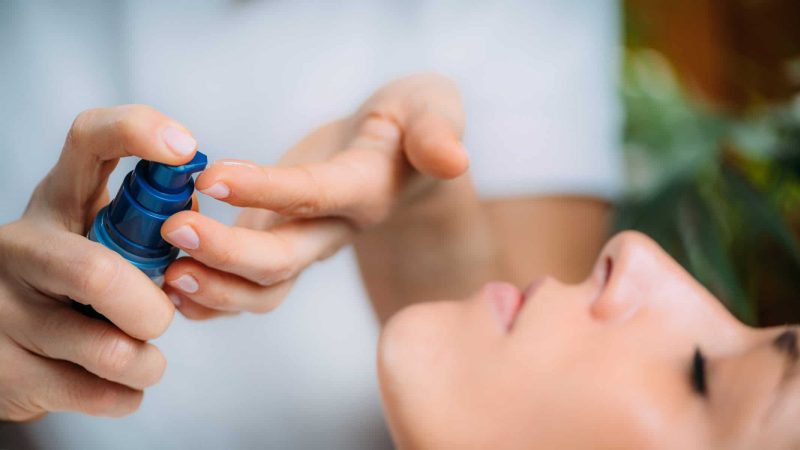Retinol plays a major role in skincare and as such is used in various skincare routines to ensure that targeted results are achieved. Retinol is a type of retinoid, which is a fat-soluble organic compound and vitamin A derivative.
Retinol exfoliates the skin, increases skin cell turnover, and stimulates collagen synthesis. It is considered the gold standard for its anti-aging and skin clearing benefits. It is available in the forms of oils, creams, and serum. It is readily absorbed from the surface of the skin when applied topically. The small molecules of retinol go deeper into the skin layer (dermis). It helps neutralize free radicals and increases surface skin cell turnover, making new cells grow underneath. They reduce the breakdown of collagen and thicken the deeper layer of the skin. They also stimulate the production of new blood vessels on the skin, reducing skin pigmentation.
Benefits of using retinol
Retinol alters the behavior of the aged cells and makes them appear more youthful. When incorporated into age preventive skincare routines, it reduces the uneven texture of the skin and makes skin look more toned. Retinol can be used all over the body. Applying vitamin A topically in the form of retinol includes the following benefits:
- It is known for its anti-aging property because retinol binds to the retinoid receptors on the skin, enhancing cell turnover and stimulating the production of elastin and collagen (skin proteins)
- It thickens the deeper skin layers and enhances the skin’s ability to retain water. This improves fine lines and wrinkles and reflects youthful, glowing skin.
- It also thins out the topmost cornified epithelial layer of the skin, improving the tone and texture of the skin.
- It can help normalize the functions of oil glands and their follicles and is extremely helpful in controlling acne.
- It helps to soften fine lines and lightening hyperpigmentation in targeted areas or all over the skin.
When is the best time to use retinol?
Your late 20s is the best time to start using retinoids. While there is no set time to use retinoids, most dermatologists advise introducing the ingredient into your skincare routine in your mid-twenties, particularly if you suffer from breakouts or pigmentation. It’s best to start with retinol, and to try it for three months and then have a three month break. This is due to research that suggests cell turnover is no longer increased after three months of usage.
It’s best to introduce a retinoid slowly but surely. Redness, dryness and flaking can be minimised or avoided by gradually building your skin’s tolerance, so limit your initial use to once or twice a week, gradually increasing the frequency as your skin acclimatises. “At night-time only, apply a pea-sized amount of retinol to clean and dry skin, avoiding the eye area,” advises Linda Blahr, Head of National Training at SkinCeuticals. “For optimal results, wait at least 30 minutes before applying other skincare products.”
Side effects of retinol
Though retinol provides a plethora of benefits on the skin, it also carries potential side effects if used without taking proper considerations.
It is the strongest ingredient found in over the counter retinol products and comes in a variety of strengths. It takes around 6 months to show visible results on the face after consistent usage. Most of the side effects are normal with retinol use and seen in almost everyone. However, they usually resolve as the skin gets accustomed to it with consistent usage. Hence, it is advised to start with low-strength retinol on alternate days and gradually increase the strength and frequency of usage.
Retinol increases sun sensitivity; hence, it should not be used during the day. Sunscreen with a sun protection factor (SPF) over 30 should be used throughout the year. Some of the side effects of using retinol include:
- It causes skin irritation or reddening if incorporated too quickly into the skincare regimen or used too often.
- Flakiness, dryness, and acne breakouts can occur when retinol is first added to the skincare routine.
- Increased sensitivity to the sun, dry skin, and peeling of the skin.
- Retinol should not be used by pregnant or breastfeeding women.

